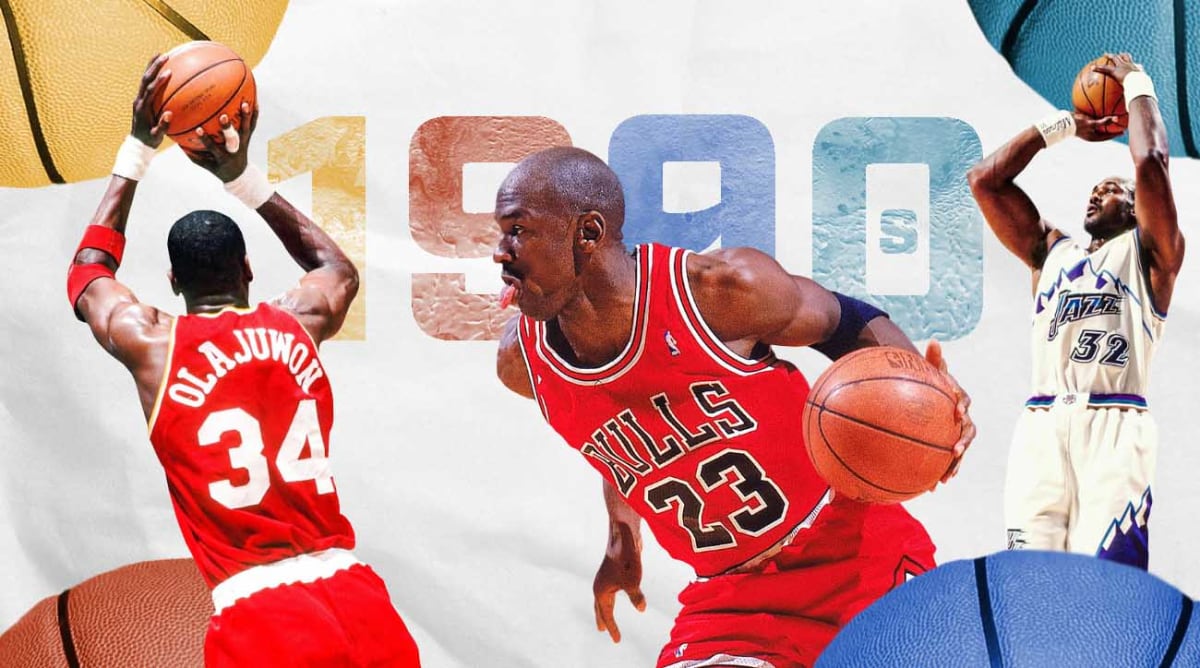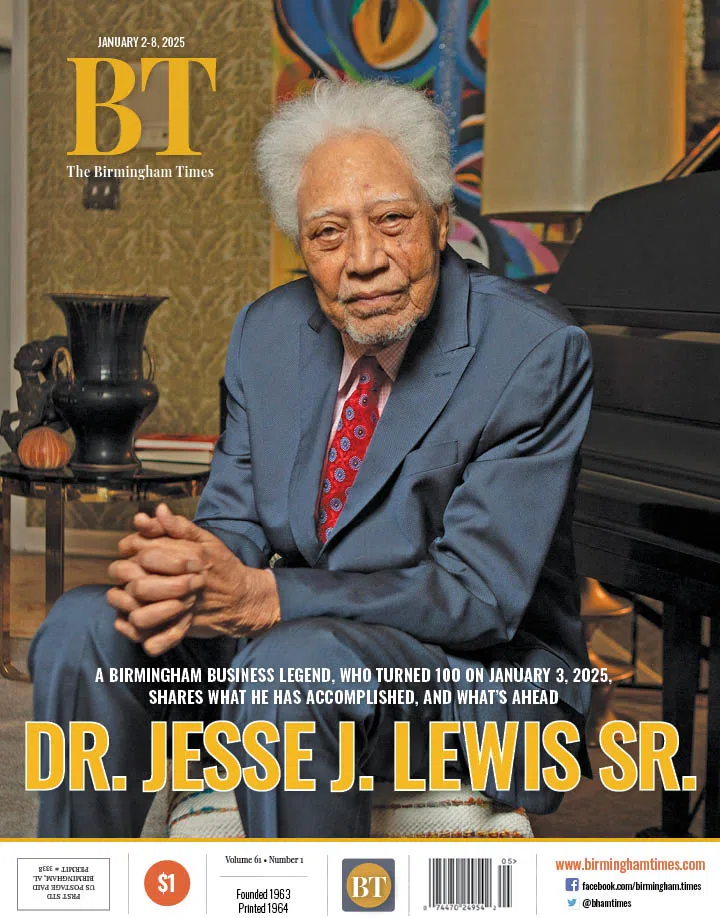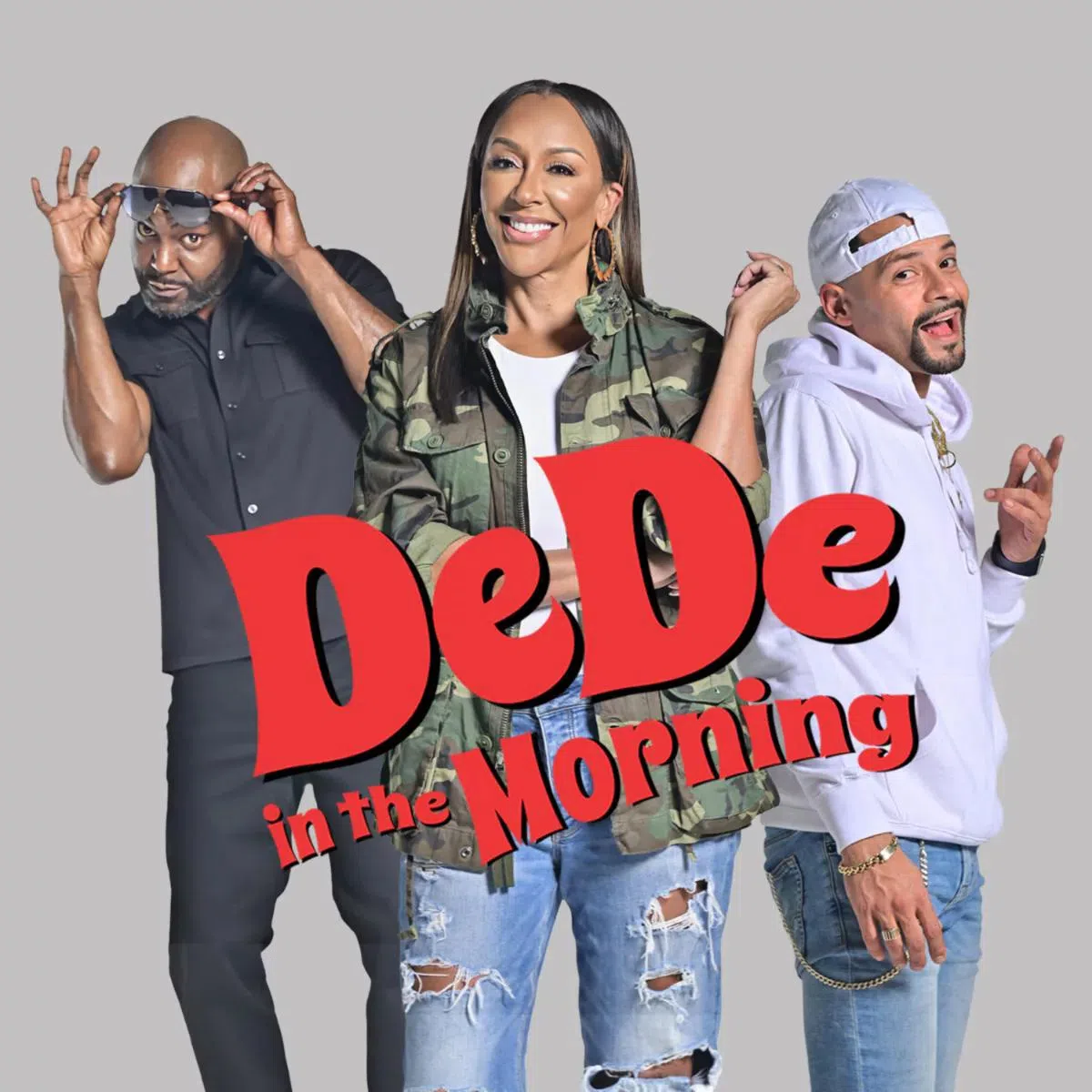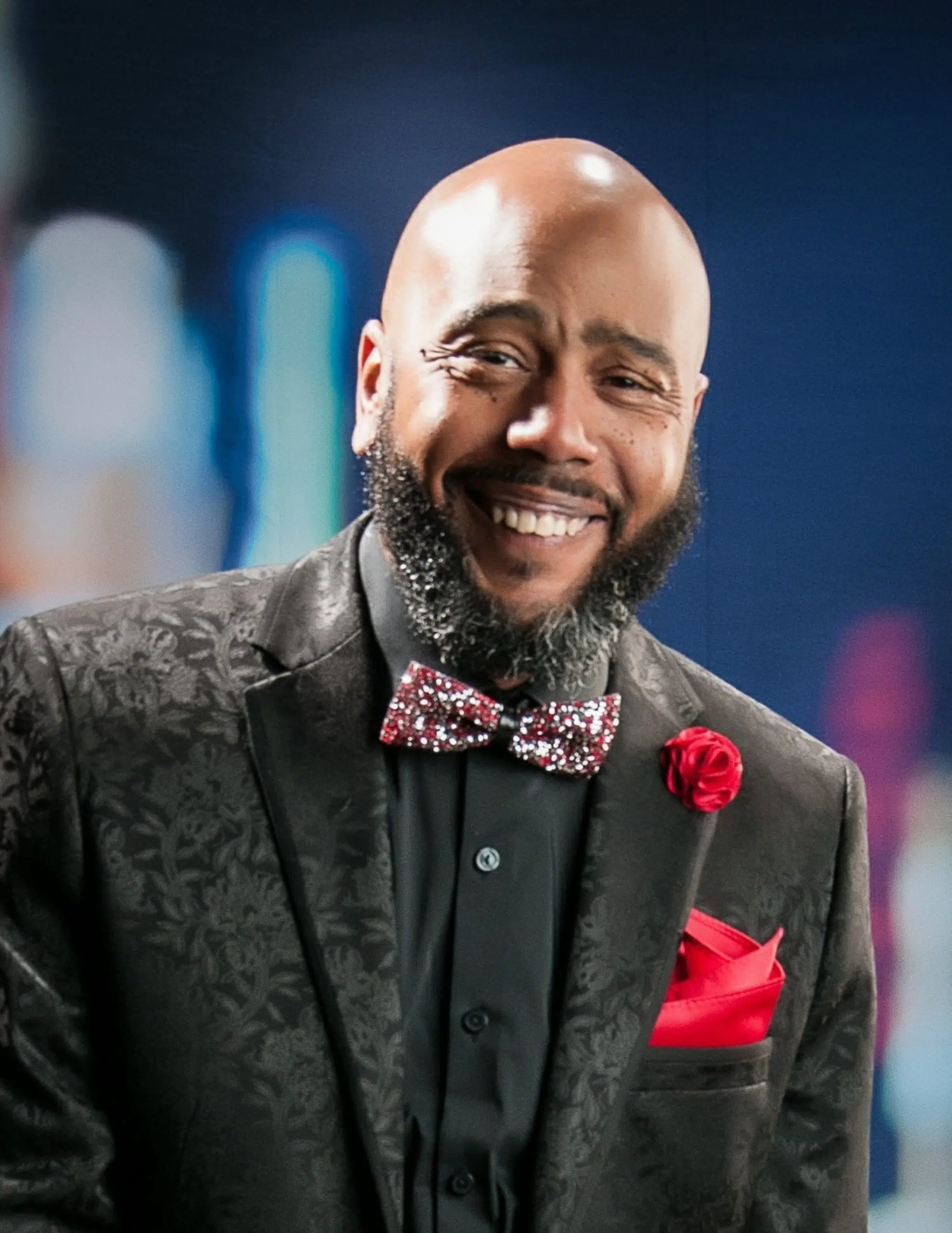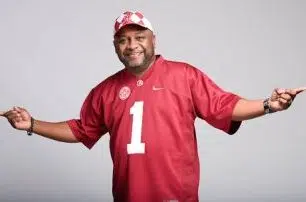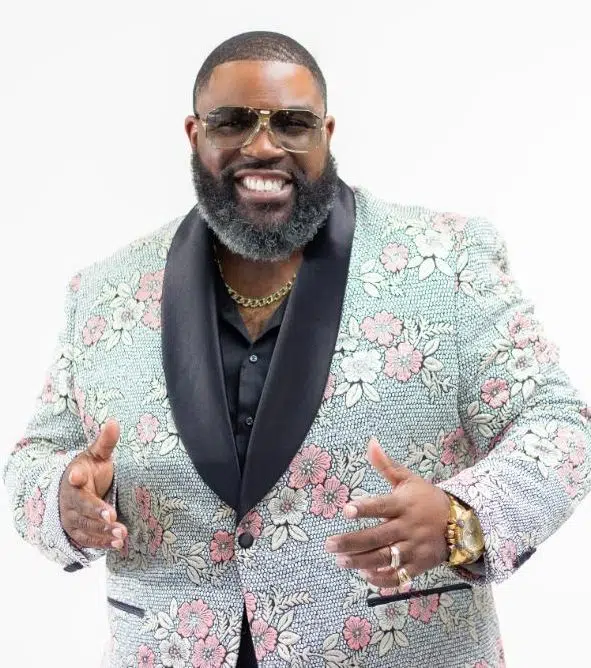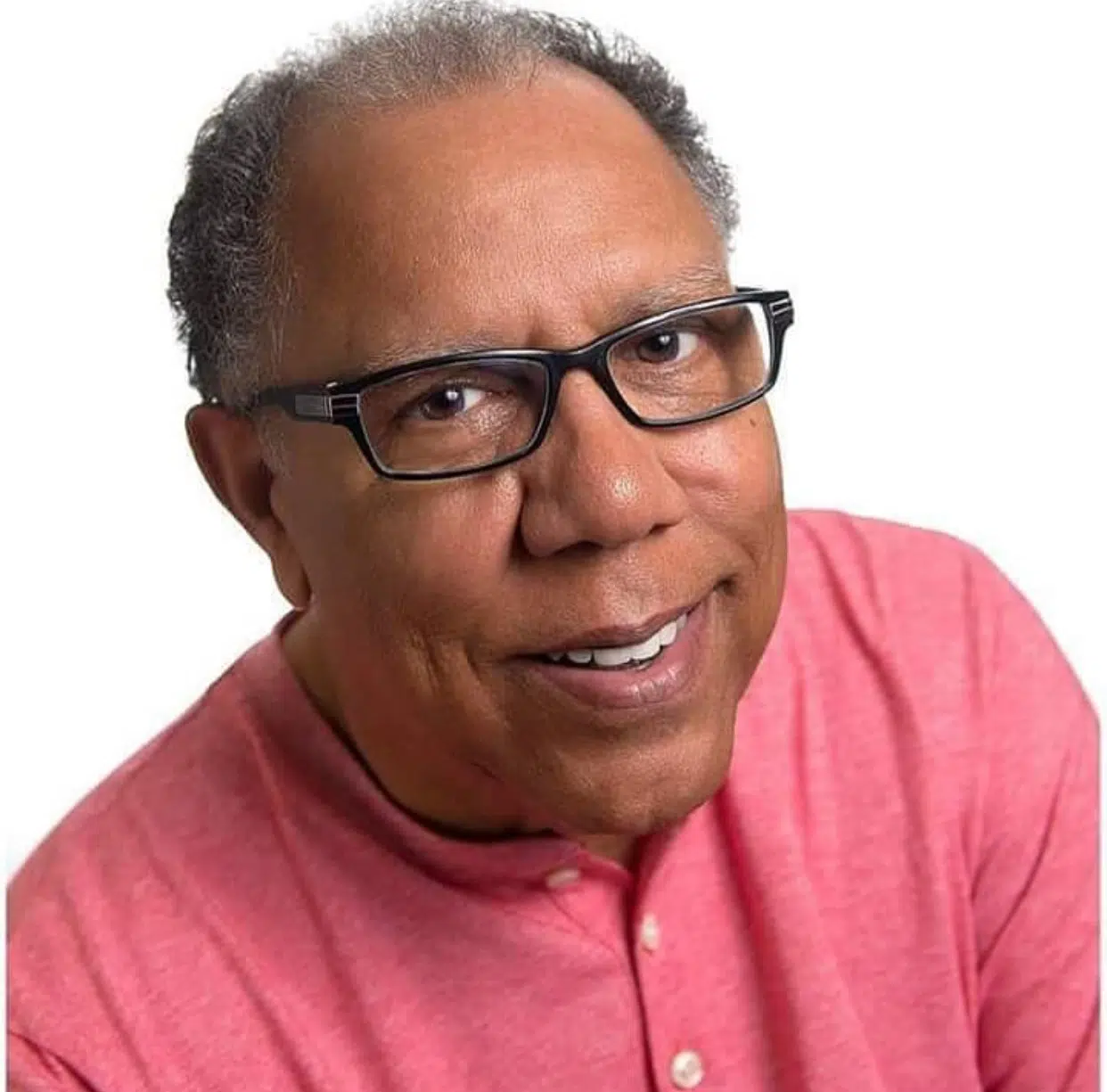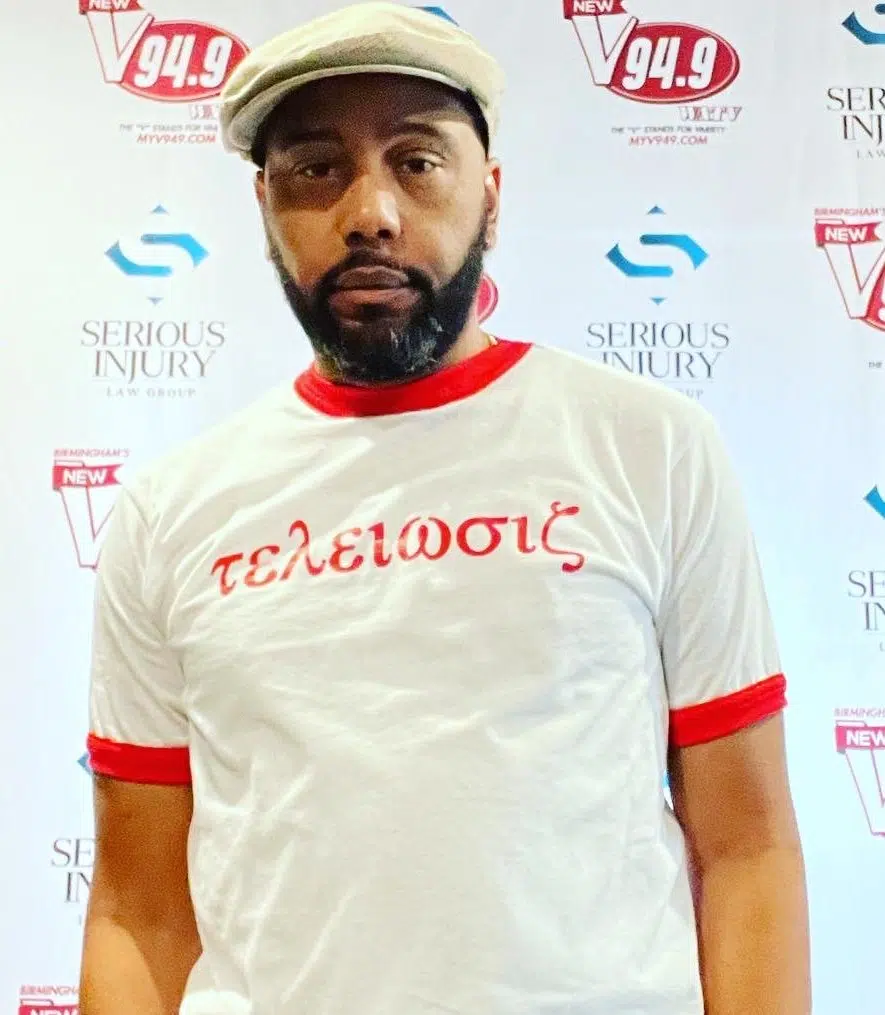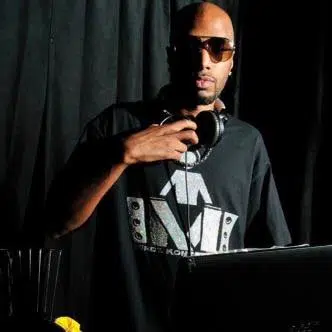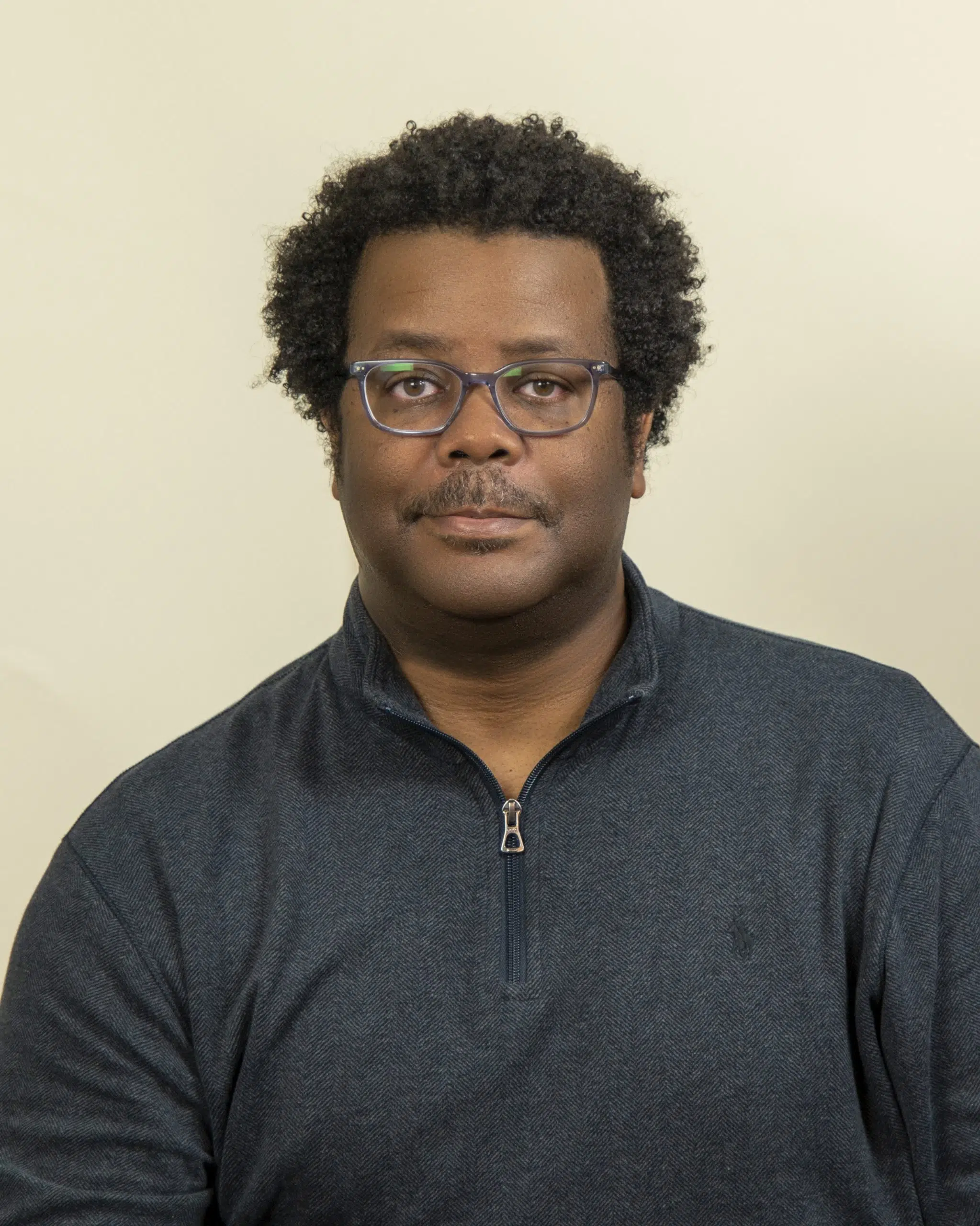The Crossover will look at the NBA’s best player in each season from 1979-80 to 2019-20. Today, we’ll look back to the 1990s.
The 1980s marked the NBA’s rise in prominence in the United States. The 1990s saw the league become a global force. Michael Jordan and the Dream Team ushered in a new era of basketball, with the league’s superstars becoming household names across the developed world. And there were no shortage of brand-name players for fans to idolize.
Jordan ruled throughout the 1990s, snagging six championships and four MVPs. But he isn’t the only player worth focusing on as we search for the best player alive in every season from 1980-2020. Jordan abdicated the throne in 1994, 1995 and 1999, and the other years still featured a fierce battle for the No. 2 and No. 3 spots behind the greatest player in NBA history.
So who took the mantle from Jordan and who challenged the throne? Check out The Crossover’s picks for the best player in every year of the 1990s below.
1989-90 – Michael Jordan
The league had still yet to fully embrace Jordan by 1989-90 as Johnson won his final MVP award. But it’s hard to see the logic behind the voting. Another season marked another minutes and scoring title for Jordan, and he led the league in win shares while finishing fourth in offensive rating. Johnson’s superb infrastructure led to another strong season and a first-place finish in the West. But flip the situations, and it’s hard to see Johnson carrying the Bulls to the same degree.
Honorable Mentions – Isiah Thomas, Magic Johnson
Johnson still earned his first-team All-NBA honor in 1989-90 as the Lakers sported the league’s top offensive rating. Only Charles Barkley and Jordan posted a better PER, and John Stockton was the lone player to dished more assists per game. Given his Hall-of-Fame pedigree, let’s keep Johnson in the top three for the final time.
There are plenty of deserving candidates for the last spot in 1989-90, and Barkley likely has the best case given his offensive brilliance. But it would be disrespectful to not include Isiah Thomas in his final championship season. The statistical resume doesn’t jump off the page. Thomas didn’t cross 19 points per game, and he didn’t average double digit assists. Bill Lambeer, Dennis Rodman and Joe Dumars all tallied more win shares than Detroit’s Hall-of-Fame point guard.
But focusing solely on the stat-line obscures the point. Thomas turned in a double-double in Game 7 of the Eastern Conference finals, and he decimated the Blazers with 27.6 points and seven assists per game in the Finals. Thomas was the heartbeat of the Bad Boys Pistons. He remains one of the more underrated players in NBA history. He may have never been the league’s best player, though he had an argument in 1989-90.

1990-91 – Michael Jordan
Jordan lost the minutes title to Chris Mullin in 1990-91, but he still led the league in points, PER and win shares before snagging his first championship in a five-game series against the Lakers. And Jordan’s playoff numbers were downright dominant. He averaged 31.2 points and 11.4 assists per game in the Finals, and he made 15 of 18 shots in Game 2 en route to a 55.8% mark from the field in the series. There was no doubting Jordan’s standing atop the league at the end of 1991-92.
Honorable Mentions – David Robinson, Charles Barkley
Magic and Bird hadn’t quite ceded the spotlight by 1990-91, though they weren’t quite in the conversation for the league’s top three players as they wound down their Hall-of-Fame careers. Who fills the vacuum left by the top stars of the 1980s? Let’s introduce The Admiral.
David Robinson shined in his rookie year out of the Navy, and his sophomore season only solidified his standing as one of the league’s top players. Robinson led the NBA in rebounds and blocks in 1990-91. He ranked No. 2 in defensive rating and No. 2 in win shares. San Antonio logged back-to-back 50-win seasons for the first time in franchise history, solidifying Robinson as one of the league’s top assets. Few centers have ever entered the league with such polish.
It’s been a few years since we’ve seen Barkley ranked as a top three player, though that shouldn’t be confused for a lack of production. Barkley led the NBA in two-point field goal percentage in five straight years from 1986-91. The next season marked a season of discontent for Barkley, but in 1990-91, he remained one of the game’s most productive players. He’ll fend off Olajuwon, Malone and Patrick Ewing for the final spot on our list.
1991-92 – Michael Jordan
Clyde Drexler believed he was every bit the player Jordan was in 1991-92, but the playoffs quickly disproved that notion. Jordan scored 35-plus points 10 times, including three times in the Finals. Jordan’s shrug in Game 1 is the series’ defining moment, but don’t forget Game 5. Tied 2–2, Jordan decimated the Blazers in Portland, scoring 46 points on 23 shots. Chicago would take care of business in Game 6, further solidifying Jordan as the league’s best player by a significant margin.
Honorable Mentions – Clyde Drexler, Karl Malone
We were a bit rude to Drexler above, but let’s not dismiss his credentials as one of the greatest guards of his era. The Houston product is in the top 40 all-time in points and assists, and he snagged five All-NBA appearances. 1991-92 marked one of the best seasons of his career. Drexler finished third in scoring and seventh in win shares en route to a second-place showing in the MVP voting. He was also impressive in the postseason before the Finals, combining for 77 points in the final two games of the Western Conference semifinals. Drexler will forever live in Jordan’s shadow, but he does deserve acknowledgement for an impressive career.
1991-92 marks the first of many years in which Karl Malone was a top-three player. Utah’s big man was an absolute scoring dynamo throughout the 1990s, averaging 28 points and 11.2 rebounds per game in 1991-92. Malone finished second in points and ninth in boards. Only Jordan posted a better PER. With a run to the Western Conference finals, Malone deserves to enter the top three after 1991-92.
1992-93 – Michael Jordan
Let’s keep this simple. Barkley won MVP in 1992-93, and he absolutely carried Phoenix to the Finals with a 44-point, 24-rebound effort in Game 7 of the Western Conference finals. But even at his peak, Barkley couldn’t take down Jordan. MJ torched Phoenix with 41 points per game in the Finals, including a 55 (!) point effort in Game 4. Jordan would go on to win his third title before retiring for the first time, opening the door for a new champion to arrive.
Honorable Mentions – Charles Barkley, Hakeem Olajuwon
There are some years in which the MVP feels like a robbery, awarded more out of narrative intrigue than actual performance. 1992-93 wasn’t one of those seasons. Jordan may have been the best player alive, but Barkley was the rightful MVP. Phoenix won 62 games and led the league in offensive rating, and Barkley finished the year in the top ten of both offensive and defensive win shares. This feels more like a considered choice than an MVP awarded on a whim.
It would take one more year for Olajuwon to win the Finals, but 1992-93 marks perhaps his best statistical season. He averaged 26.1 points on a career-high 52.9% from the field, adding 13 rebounds and a league-best 4.2 blocks per game. Apologies to Robinson, Malone and Ewing. Olajuwon’s dominance on both ends gives him the nod.

1993-94 – Hakeem Olajuwon
Michael Jordan freed the NBA from his run of dominance after the 1993 Finals, and Houston’s center quickly filled the void. The Rockets won 58 games as Olajuwon snagged his lone MVP, and it looks like the voters got this right in retrospect. Olajuwon finished in the top 10 in field goal percentage, rebounds, points and PER, and his playoff run truly sealed the deal. With 16 double-doubles and eight 30-point games, Olajuwon led Houston to their first championship in franchise history.
Honorable Mentions – David Robinson, Patrick Ewing
Whether it’s due to playing in San Antonio or preceding Tim Duncan, David Robinson doesn’t quite get his fair due in the discussion of the game’s great big men. And his run through the mid-90s was absolutely dominant. Robinson led the league in scoring in 1993-94 at 29.8 points per game, and he added a hearty 10.7 rebounds and 3.3 blocks for good measure. So why not give Robinson the nod as the best player alive? San Antonio’s center largely disappeared in the playoffs. He averaged just 20 points per game in a round one loss to Utah, going a combined 10–35 from the field in a pair of losses in Game 2 and Game 3. This theme will re-emerge down the road.
There’s a serious case for Scottie Pippen as the third best player here, and it’s nice he got his due in ‘The Last Dance’. But Ewing deserves the selection as he led the Knicks to their first (and only…) Finals appearance since 1973. New York’s playoff run isn’t the only argument in Ewing’s corner. He led the league with a 92.9 defensive rating (no other player allowed fewer than 95 points per 100 possessions) and Ewing ranked in the top 10 in points, rebounds and blocks. Ewing’s two-way excellence gives up the nod over Pippen in his first year without Jordan.
1994-95 – Hakeem Olajuwon
Robinson won MVP in 1994-95, but the postseason quickly revealed who was the superior center. Olajuwon absolutely demolished San Antonio in the Western Conference finals, averaging 35.3 points, 12.5 rebounds and 4.2 blocks per game. Oh, and he still made 56% of shot attempts. Robinson wilted again down the stretch, averaging 20 points per game on a combined 19-48 from the field in Games 4-6. There was little argument between Olajuwon and Robinson after the 1995 playoffs.
Honorable Mentions – David Robinson, Shaquille O’Neal
We’ve been a bit rude to Robinson here, so it’s only right we acknowledge just how spectacular he was in 1994-95. San Antonio’s center trailed only Shaq in points scored. Only O’Neal and Dikembe Mutombo snagged more rebounds. The MVP voting wasn’t really close, and rightfully so. In the regular season, nobody was better than Robinson.
O’Neal was an All-Star in his first season in 1992-93, and he had already established himself as an elite center by his third year. O’Neal led the league in scoring in 1994-95, and his grace and athleticism was unstoppable for a man his size. Olajuwon got the best of O’Neal in the Finals, and Shaq would leave for Los Angeles one year later. His Orlando tenure ended with a bitter divorce, but his peak with the Magic shouldn’t be forgotten.

1995-96 – Michael Jordan
Welcome back, Mike. Jordan returned late in the 1994-95 season, but he wasn’t quite himself as the Bulls (armed with a middling supporting cast) lost to the Magic in the playoffs. But give Jordan a full offseason to train, and the rest of the league stood little chance. Jordan led the league in scoring and PER as the Bulls won 72 games. They then blitzed the competition in the playoffs, sealing their place as one of the best teams in NBA history. Perhaps Jordan lost a minor step after returning from baseball. It didn’t matter in the slightest.
Honorable Mentions – Penny Hardaway, Gary Payton
Robinson logged his last great year in 1995-96, but he still played a notch below his MVP self. Let’s bring some new blood into the discussion. 1995-96 marks the best year of Penny Hardaway’s career, a third-place MVP finish as he trailed only Jordan, David Robinson and Karl Malone in win shares. Hardaway at his best was an electric point guard, and he in spurts looked like the future of the NBA. It’s a shame this is the last time we’ll see him on our list.
There are a number of ways to go with the third spot on our list, though the best options are likely split between two teams. John Stockton and Karl Malone were brilliant in 1995-96, as were Gary Payton and Shawn Kemp. Don’t count out Kemp’s candidacy. He was the league’s best roll man at 19.6 points per game on 56% shooting, and the Bulls had a serious problem containing him in the Finals. Yet it’s hard to shake the notion that Kemp couldn’t flourish without Payton. The Glove tallied 7.5 assists per game along with 19.3 points in 1995-96, and he won Defensive Player of the Year. Seattle defeated Utah in the Western Conference finals, and perhaps the matchup with Jordan is different if Payton draws the assignment from Game 1. He’ll take our third spot here as a minor consolation prize.
1996-97 – Michael Jordan
We noted the legitimacy of Barkley’s MVP in 1993 above, but Malone’s win in 1996-97 doesn’t hold water upon further examination. This wasn’t a case of Jordan taking his foot off the pedal. The Bulls won 69 games in the regular season. Jordan led the league in win shares and points per game. Malone’s year was fantastic, but The Mailman didn’t exactly deliver in the Finals. Jordan did, combing for 77 points in Game 5 and Game 6. Is there any question as to who’s the best player alive?
Honorable Mentions – Karl Malone, John Stockton
Malone may have wilted to a degree in the Finals, but we’d be remiss if we blew past his terrific regular season. The star power forward was the NBA’s PER king, and only Jordan scored more points. Malone was spectacular down the stretch of the regular season, averaging 28.8 ppg on 59% shooting as the Jazz won 23 of their last 25 games. Perhaps it was the late-season run that gave Malone the MVP.
It’s a shame it’s taken us this long to note Stockton’s (largely) unimpeachable career. If we extended this list to the best five players every year, perhaps this is his third or fourth appearance. Regardless, Stockton was an All-NBA talent throughout the 1990s, and he continued to shine in 1996-97. Stockton shot a career-best 55% from the field in his 14th season, and he finished second in true shooting percentage. Mario Elie was the only player with a better offensive rating. Only three players totaled more win shares. Grant Hill deserves consideration here, but Stockton’s greatness must be acknowledged, especially after his game-winning three to defeat the Rockets and send the Jazz to their first of back-to-back Finals.
1997-98 – Michael Jordan
Anyone else feel a wisp of nostalgia? This is the last time we’ll see Jordan on our list, and he finished his Bulls career with a flourish. Jordan won his 5th MVP in 1997-98, then captured his sixth championship with perhaps the most iconic shot in the game’s history. MJ went out on top, though as we learned in The Last Dance he is still upset over not getting a chance to win ring No. 7. Most basketball fans feel the same way.
Honorable Mentions – Karl Malone, Shaquille O’Neal
Considering his lack of recognition from the basketball intelligentsia, it’s frankly astounding to see Malone featured so prevalently on our list. But his performance in the 1990s remains largely unassailable (at least in the regular season). Malone finished second in PER, second in points and sixth in true shooting in 1997-98, leading Utah to 62 wins. He was even impressive in the postseason, averaging 26.3 points and 11 rebounds in 20 games. Malone torched Chicago in Game 5 of the Finals with a 39-point effort, but we know how Game 6 ends. Malone is stripped and Jordan scores, denying the Jazz of their first championship.
O’Neal would wait two more years to win his first Finals, but he had fully arrived as a superstar by 1997-98. Shaq led the NBA in field goal percentage as he scored over 28 points per game, and the Lakers reached the Western Conference finals for the first time since 1991. The advanced metrics weren’t as kind to Shaq as they were to Malone, but the gap had been closed between the two big men by the end of 1997-98.

1998-99 – Karl Malone
I promise this list isn’t some shrine to Karl Malone. Frankly, that would be quite the depressing way to spend my time, even in quarantine. But despite his personal and stylistic shortcomings, Malone was a downright superstar. And he still continued his excellence through the end of the 1990s. Malone won his second MVP award in 1998-99, finishing first in win shares and third in points. Tim Duncan and the Spurs won the Finals, but he was still a step below Malone in 1998-99. The other leading big man has a better case.
Honorable Mentions – Shaquille O’Neal, Tim Duncan
O’Neal continued his ascent through the end of the 1990s, and he has a very strong case as the league’s top player. He led the NBA in effective field goal percentage, finished second in points per game and eighth in rebounds. Yet 1998-99 still lingers as a minor disappointment for the Lakers. They went just 31–19 in an abbreviated regular season, then got swept by the Spurs in the Western Conference semifinals. O’Neal’s run atop the NBA would have to wait until the turn of the century.
Duncan’s regular-season numbers aren’t quite as impressive as his peak in the early 2000s, but the Wake Forest product fully proved himself with a dominant 1999 playoffs. He combined for 70 points and 28 rebounds in a pair of wins to close out the Lakers, and he averaged 27.4 points and 14 rebounds in the Finals. 1998-99 may have been the most athletic we’ve ever seen Duncan. He was a legitimate vertical spacer and a bit of a gazelle gliding up the floor. Duncan wasn’t at his peak in 1998-99, but he was still plenty spectacular as San Antonio won its first championship.


